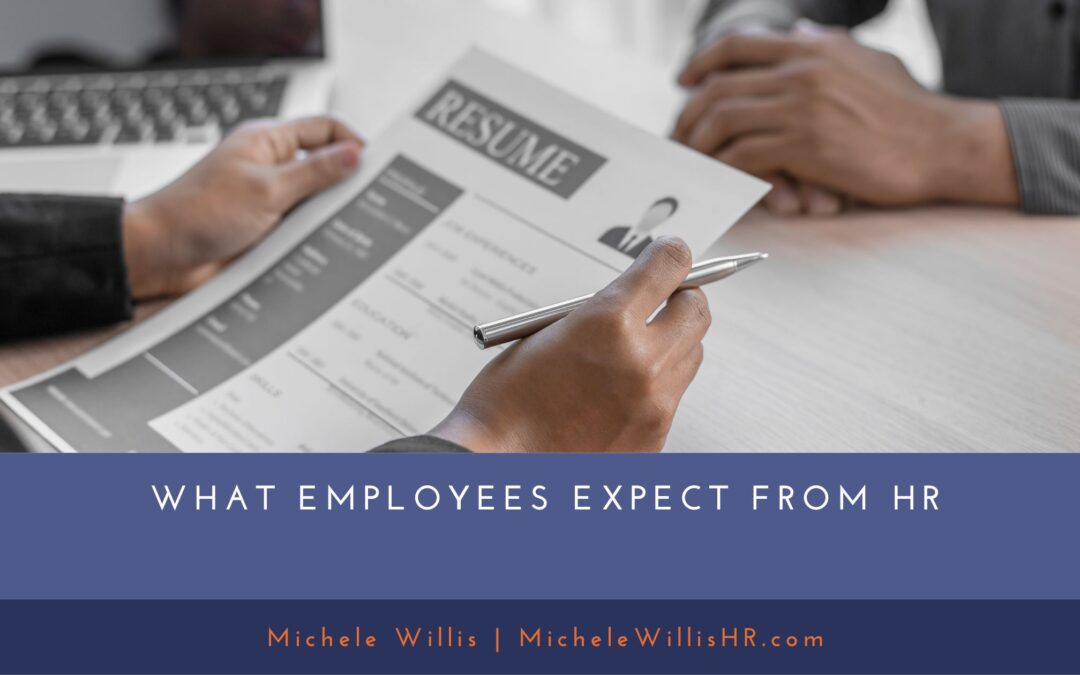In the contemporary workplace, the Human Resources (HR) department plays a crucial role in fostering a positive work environment and ensuring the well-being of employees. Employees have specific expectations from HR that go beyond traditional administrative functions.
Here are some key aspects that employees commonly expect from their HR department:
Effective Communication:
Employees expect HR to be a reliable source of communication within the organization. This includes clear and timely dissemination of information about policies, procedures, and any changes that may impact them. Transparent communication helps build trust and ensures employees are well-informed about matters affecting their work lives.
Fair and Consistent Policies:
HR is responsible for establishing and implementing workplace policies. Employees expect these policies to be fair, consistent, and applied uniformly across all levels of the organization. Fairness in policies related to hiring, promotions, compensation, and disciplinary actions contributes to a positive and equitable work environment.
Supportive Employee Relations:
HR is often the go-to department for addressing workplace conflicts and employee relations issues. Employees expect HR professionals to handle disputes impartially, mediate conflicts effectively, and provide guidance on navigating interpersonal challenges. Creating a supportive atmosphere for employees enhances overall job satisfaction.
Performance Feedback and Recognition:
Regular performance feedback is essential for employee growth. HR is expected to implement performance appraisal systems that provide constructive feedback, identify areas for improvement, and recognize outstanding contributions. Additionally, employees appreciate HR initiatives that acknowledge and celebrate achievements, fostering a positive and motivating workplace culture.
Health and Well-being Programs:
Employee well-being is a growing concern, and HR is expected to proactively promote a healthy work-life balance. Employees appreciate wellness programs, mental health resources, and initiatives addressing their well-being.
Efficient Recruitment and Onboarding Processes:
Employees expect HR to manage efficient and transparent recruitment processes. A streamlined onboarding experience is also crucial for new hires to integrate seamlessly into the organization. Clear communication, timely feedback, and a well-organized onboarding program create a positive first impression.
Competitive Compensation and Benefits:
HR is responsible for designing and managing compensation and benefits packages. Employees expect competitive and fair compensation that aligns with industry standards. Additionally, comprehensive benefits, including health insurance, retirement plans, and other perks, contribute to overall job satisfaction.
Accessibility and Approachability:
Employees appreciate HR professionals who are approachable and accessible. An open-door policy and a willingness to listen to employee concerns contribute to a positive HR-employee relationship. Being responsive to inquiries and providing timely support enhances trust and confidence in the HR department.
Compliance with Employment Laws:
HR is expected to stay updated on employment laws and ensure the organization’s compliance. Employees rely on HR to protect their rights and interests, making it essential for HR professionals to navigate legal matters effectively and ethically.
Employees expect HR to go beyond traditional administrative functions and play a proactive role in creating a positive and supportive workplace. By fostering effective communication, implementing fair policies, promoting professional development, and addressing employee well-being, HR can contribute significantly to the overall satisfaction and success of the workforce.
